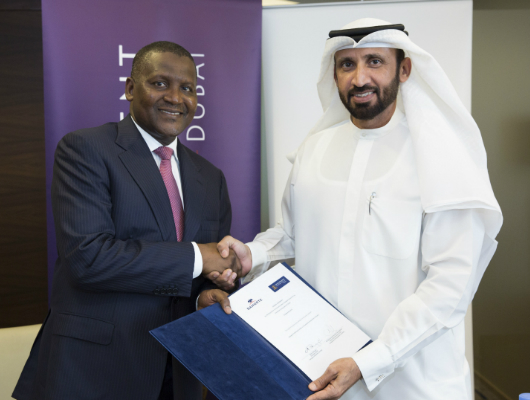Aliko Dangote is Paving the Road to Success in Africa

Aliko Dangote is known not only as the wealthiest person in Africa but also as the continent’s largest donor. This year, Dangote appeared in Forbes business magazine’s list of the most powerful people on the planet. Dangote is known for utilizing the rich agricultural land of his native country, Nigeria, to generate profits.
In 1981, Dangote founded the Dangote Group, a conglomerate offering products ranging from flour and salt to cement. The cement sector of the Dangote Group has operations in Nigeria and 14 other African countries, and Dangote Cement is the only Nigerian company on the Forbes Global 2000 Companies.
Despite his success, Dangote’s critics accuse him of using his political connections with African leaders to ban imports from his competitors. In 2012, only five percent of Dangote Cement was publicly traded.
However, Dangote claims the primary purpose behind his business strategies was and is to use Africa’s resources to bring money to Africa. This type of business approach is called “backward integration,” a process wherein a country uses its own production to replace imports.
Nigeria’s abundance of limestone provides the country with easy access to concrete. This concrete, Dangote argues, could improve Nigeria’s roads. In September of this year, Dangote urged the federal government to consider concrete roads in lieu of bitumen roads claiming that the concrete is cheaper and more durable.
In addition, concrete roads supposedly require less maintenance and upkeep. The concrete road discussion is being rigorously debated among members of the Nigeria Economic Summit Group (NESG).
Of course, in most parts of the world, accessible roads are vital to transportation. Nigeria has the largest road network in West Africa and the second largest south of the Sahara. Whether or not the discussion is about concrete roads, improving a country’s infrastructure is pivotal to both broadening its economy and increasing its opportunities for advancement.
– Dana McLemore
Sources: Economist, Forbes, Reuters, The News Nigeria, Vanguard Newspapers
Photo: Wikimedia
